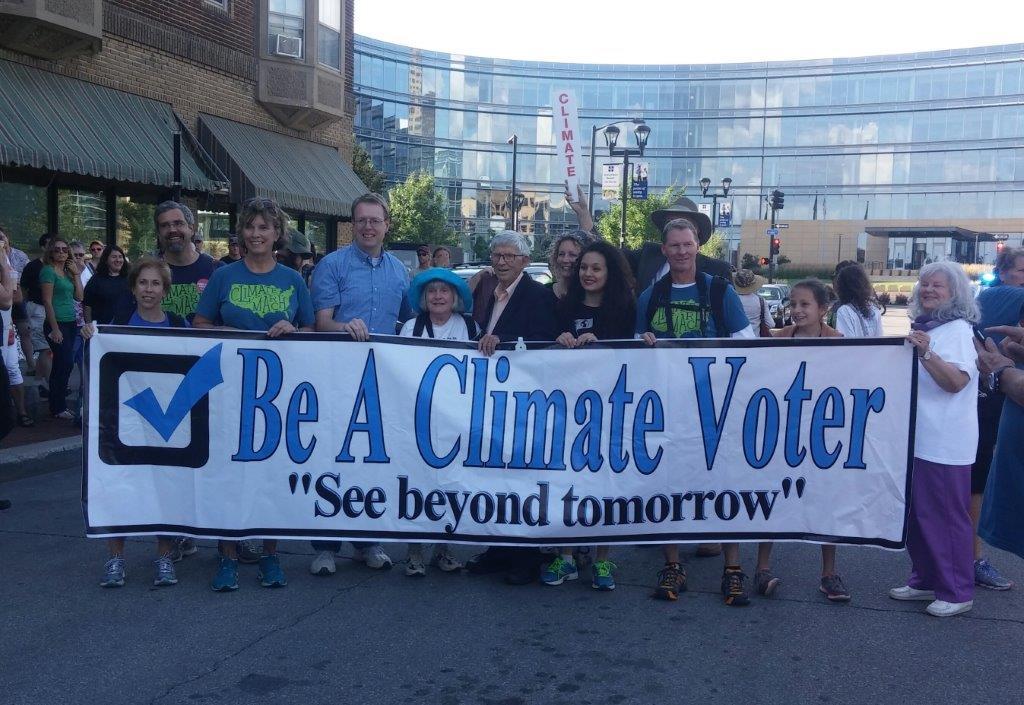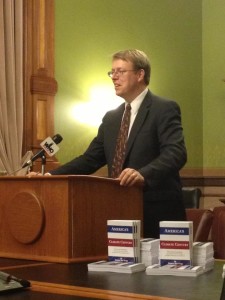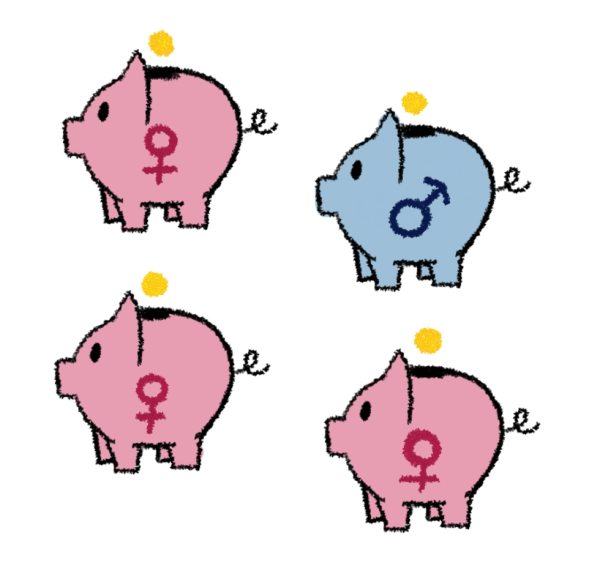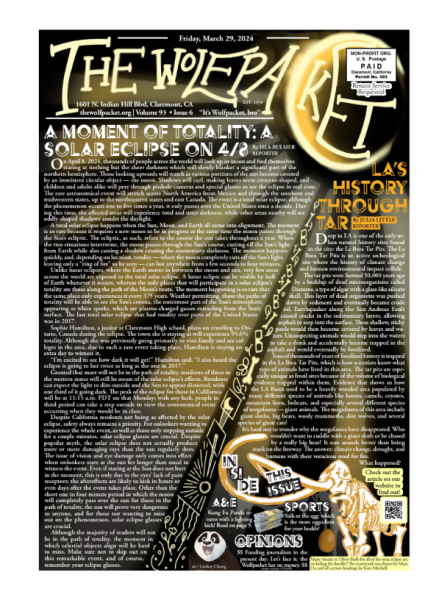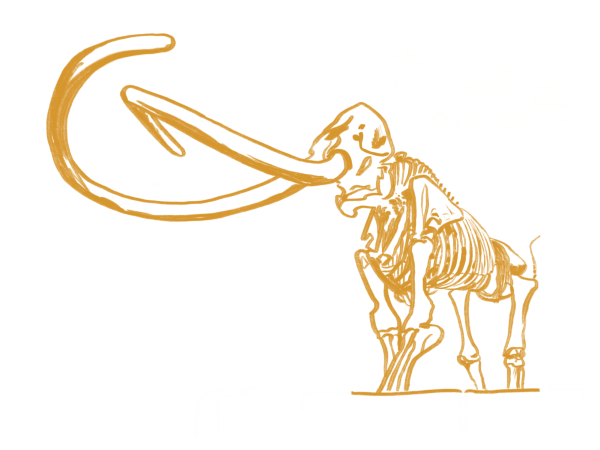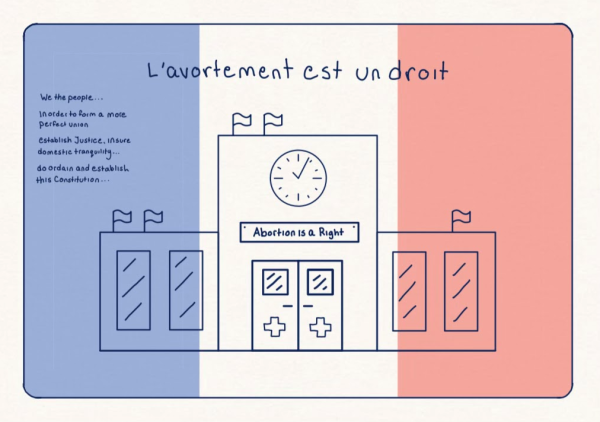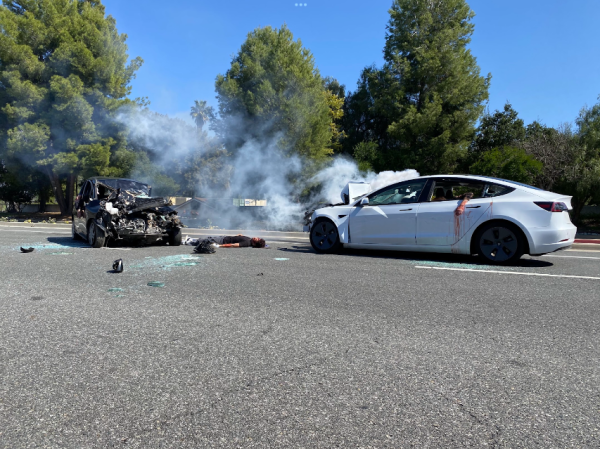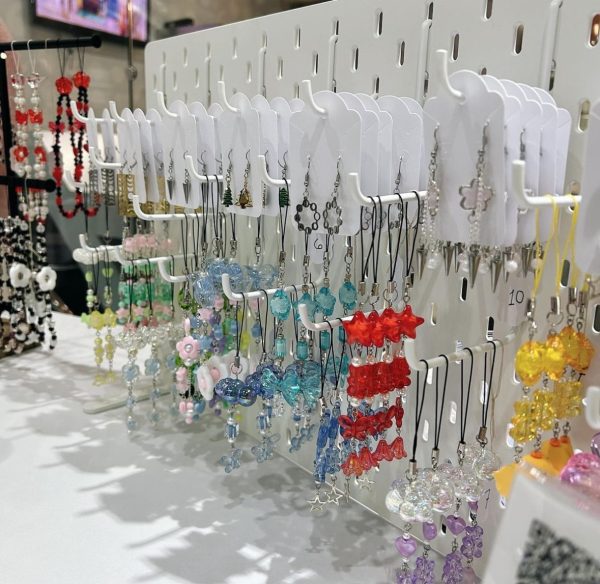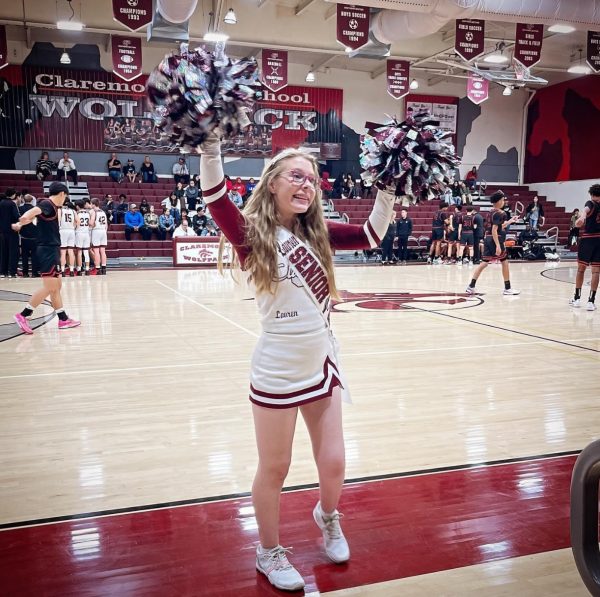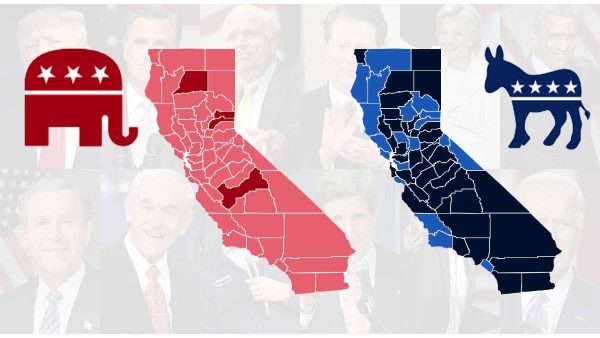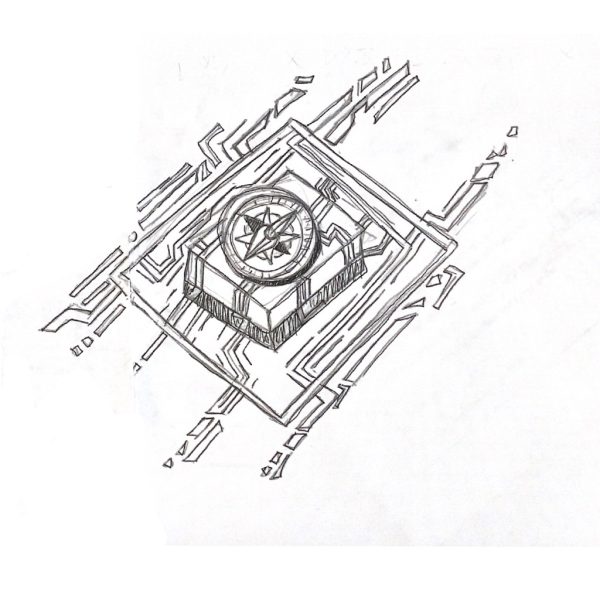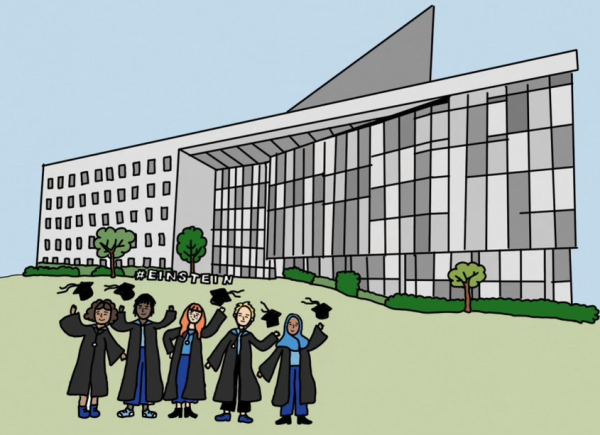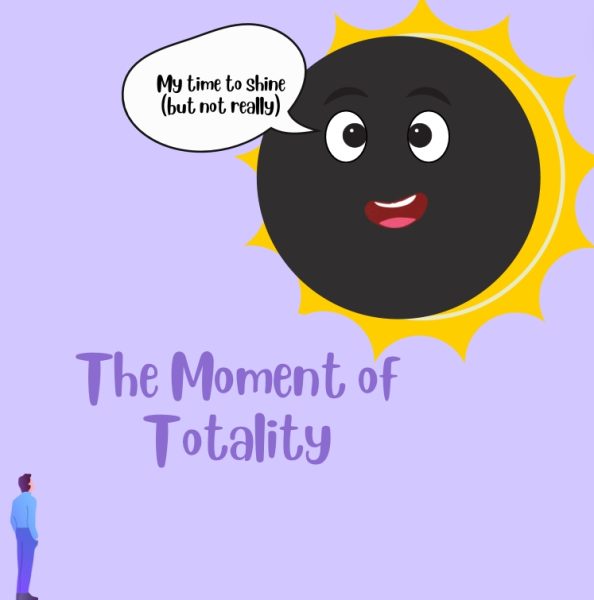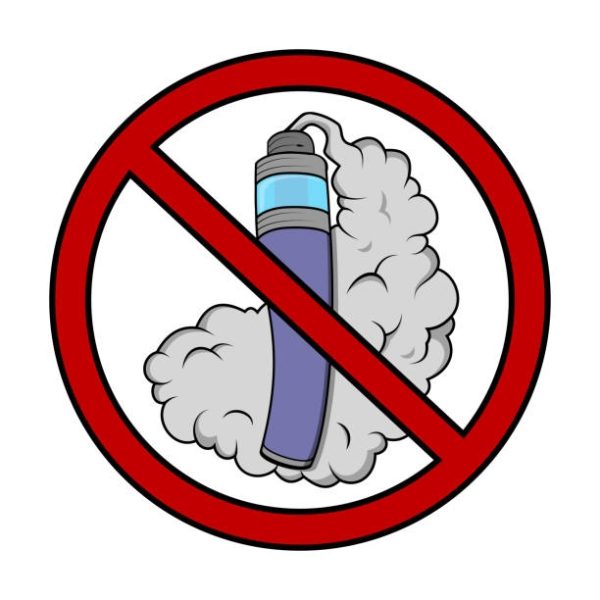Climate Change Q&A with Iowa State Senator Rob Hogg
Senator Rob Hogg of Iowa was just re-elected to his third term as a state senator. In 2013, Senator Hogg wrote a book on climate change and what Americans can do about it. With the serious drought and concerns over air quality in California, and the recent successful water ballots in Claremont (Measure W) and CA (Prop 1), the Wolfpacket interviewed him for some practical advice about this ongoing global issue.
Q: What is the main idea of your book America’s Climate Century?
A: “It’s basically that the defining challenge our country faces in the 21st century is climate change and issues with sustainability. Just like our country has faced other defining challenges in our past: the Civil War, the World Wars, the Great Depression, the Cold War, civil rights, just like we’ve had those major overriding challenges in the past, the overriding challenge we face in this century is to find a way for seven-plus billion people to live on the world sustainably without changing our climate in dangerous ways and causing other ecological harm than most people.”
Q: What is the most immediate danger due to climate change?
A: “Well, we are already experiencing multiple dangers from climate change. In California, you have the worst drought in your state’s history. In Iowa, we have the worst flooding in our state’s history. In the last 6 or 7 years around the world everybody is experiencing climate change, and it’s dangerous for different places in different ways. Probably the easiest way for me to characterize it is to simply say that we’re changing the foundation of our ecological system which allowed human civilization to grow to the seven-plus billion people we have today. We’ve got the drought in California, the sea-level rise around the world, which may not be as big a deal that’s going to affect some places in California, but then it’s already having consequences in Miami and Norfolk Virginia and up in New England. And so we face all these challenges simultaneously. It’s the climate system that our country and our civilization is dependant upon, and that is going to be very difficult for us to deal with.”
Q: What would an argument be for people who do not believe climate change is real?
A: “Well, if you don’t think it’s a real issue, number one I would say you can’t deny that catastrophic consequences of climate-related events have already happened. Hurricane Sandy killed 117 Americans and cost our country $70 billion. The tornado in Moore, Oklahoma, killed 26 people, and the towns in California that had water no longer have water. So even if you just want to say that it has nothing to do with the atmosphere or greenhouse gases, it still has to deal with consequences of these disasters that are happening and we have to prepare for extreme weather. The second thing I would say is that greenhouse gases have something to do with what’s happening, but if you’re not there yet, okay that’s all right, but you’ve got to pay attention and be responsible because there are real consequences. It’s okay and it’s healthy for people to be skeptical; skepticism is not a bad trait. One of the responsibilities that goes with skepticism is to understand that if you’re wrong, you have to act much more significantly later. I really do believe this is a situation where people who are skeptical today will be leaders for climate action in the coming days and years because people can change; people have the capacity to change. One of the examples I like to use is, there were lots of Americans who were very skeptical about the United States getting involved in World War II. Even before Pearl Harbor, most Americans thought our country should get involved in World War II because they saw what the Nazis were doing to Great Britain. There were a lot of Americans who were very skeptical about civil rights; they didn’t think segregation was a problem. They didn’t think barring African Americans from voting was a problem. A lot of those people later became leaders for civil rights because they recognized they had been wrong. So, the message for people, in my book I call them doubting Thomases: a doubting Thomas today could be a leader for climate action tomorrow. You have got to deal with the real people who are suffering real consequences from real disasters right now. There’s nothing easy about that. It’s what people are experiencing, but now on top of that you have got to be ready to understand: ‘okay, new events have happened and I’ve reached a new understanding, now I get it, now we need to unite for climate action because we’ve got to stop the buildup of greenhouse gasses in our atmosphere.’”
Q: How do you feel about the rumors that there are only 12 months of water supply left in California?
A: “I have no way of assessing that, but here’s what I would tell people who live in California; I represented Cedar Rapids and lived through the most unprecedented flood in our history. The Cedar River of Cedar Rapids had never had a flood larger than 21 feet…and on June 11th 12th and 13th, the river reached 31 feet, 10 feet higher than any flood that has happened before. So there in California, you are experiencing a drought that is deeper than any drought before, and I think it is prudent to prepare for even worse circumstances and worse consequences. Science tells us we’re having more disasters, more severe disasters. So on the water issue, I have no way of knowing how much water California has left, and I hope that you get some gentle rains the rest of this fall and this winter that will gradually restore reservoirs and then everything will be okay, but to be responsible you got to prepare as if that worst case is happening, because we were well prepared for a record flood here in 2008 and it so far surpassed a prior flood that was truly devastating for our community because there was no way we could prepare. We never even imagined that we were going to have a flood as big as the flood that we had. And it caused real heartache for real people. The good news was nobody died, but I will tell you it was an awful experience, and very costly, very, very costly.”
Q: What are other good ways to raise awareness about climate change?
A: “Well, there are a lot of things to do: speaking up, every time you do something in your personal life to help the environment, you should let one of your elected officials know about it. We all don’t have our own atmosphere; we share that. And in order to safeguard our people and our property and our future, we need to act, not just as individuals, but as a community, as states, and as a country. So the most important thing for people to do is to speak up, and in order to speak up, you need to get more informed and more involved. Elected officials can change their views based on public opinion.”
Hello there! Our goal is to provide relavent, engaging journalism for readers of all ages. Your donation will support the student journalists of the Wolfpacket at Claremont High School, and will allow us to purchase equipment, print our monthly issues, and enter in journalism competitions. We appreciate your consideration!
Roi Wallace is a junior at Claremont High School. It’s her first year in Wolfpacket. She plays on the varsity volleyball team and in her free time you...





